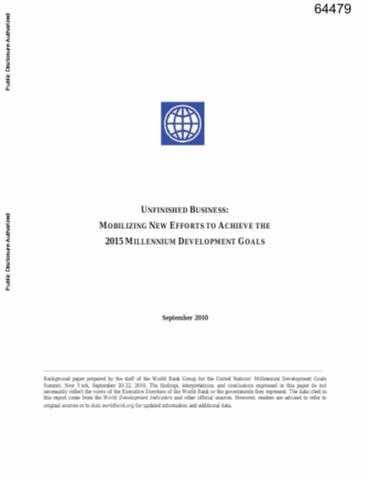Resource information
Backed by sound economic policies and until the global crisis, a buoyant global economy, many developing countries made significant movement toward achieving the 2015millennium Development Goals (MDGs), particularly those for poverty reduction, gender parity in education, and reliable access to safe water. But even before the global economic crisis, progress in achieving some MDGs, especially those on child and maternal mortality, primary school completion, hunger, and sanitation, was lagging. The global food, fuel and economic crises have set back progress to the MDGs. An estimated 64 million more people are living on less than $1.25/day than there would have been without the crisis. The challenges ahead are achieving the MDGs requires a vibrant global economy, powered by strong, sustainable, multi-polar growth, underpinned by sound policies and reform at the country level; improving access for the poor to health, education, affordable food, trade, finance, and basic infrastructure is key to accelerating progress to the MDGs; developing countries need to continue to strengthen resilience to global volatility in order to protect gains and sustain progress toward the MDGs; the international community must renew its commitment to reach the 'bottom billion', particularly those in fragile and conflict-affected countries; and global support for a comprehensive development agenda including through the G20 process is critical. In the wake of recent global crises, and with the 2015 deadline approaching, business as usual is not enough to meet the MDGs.


